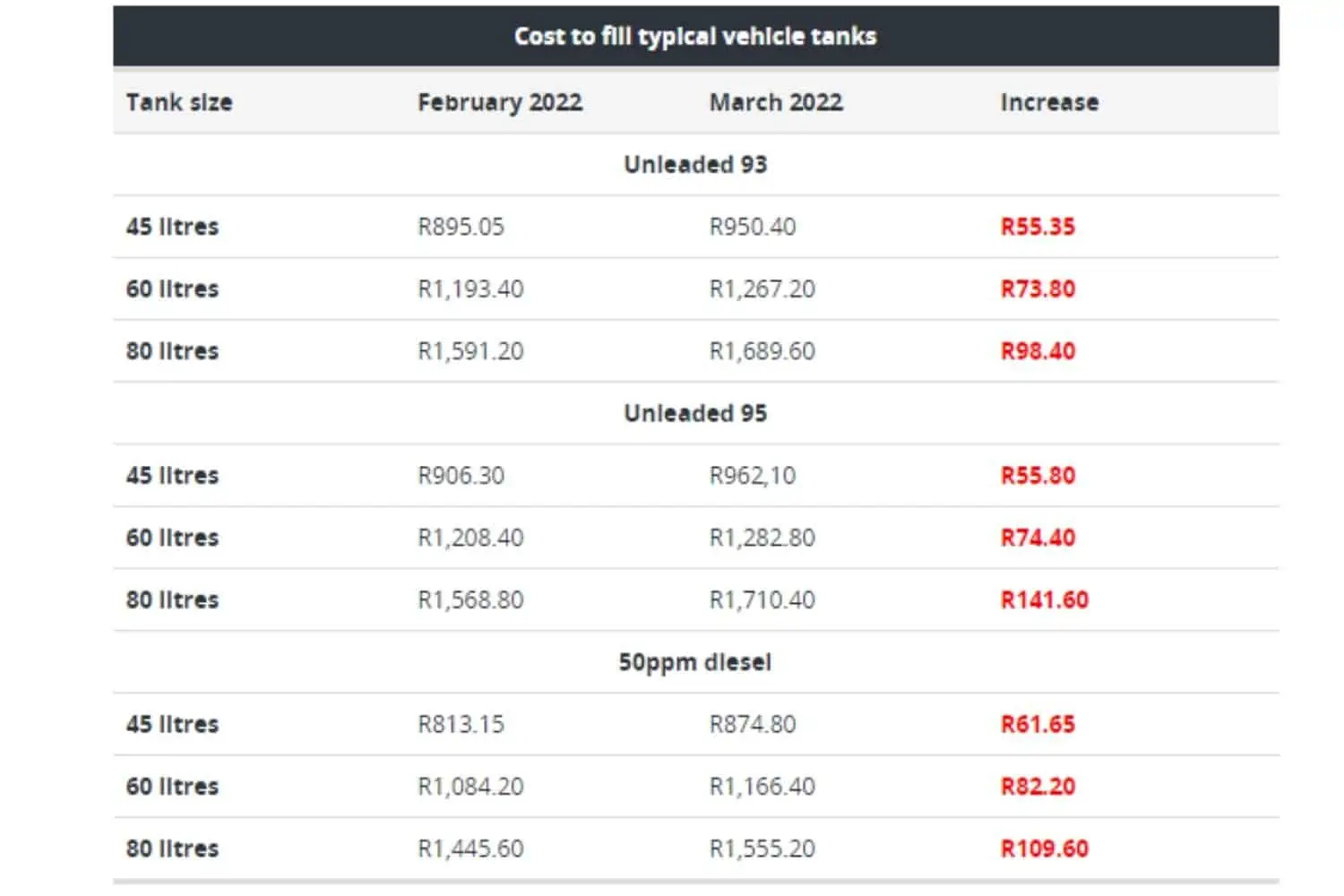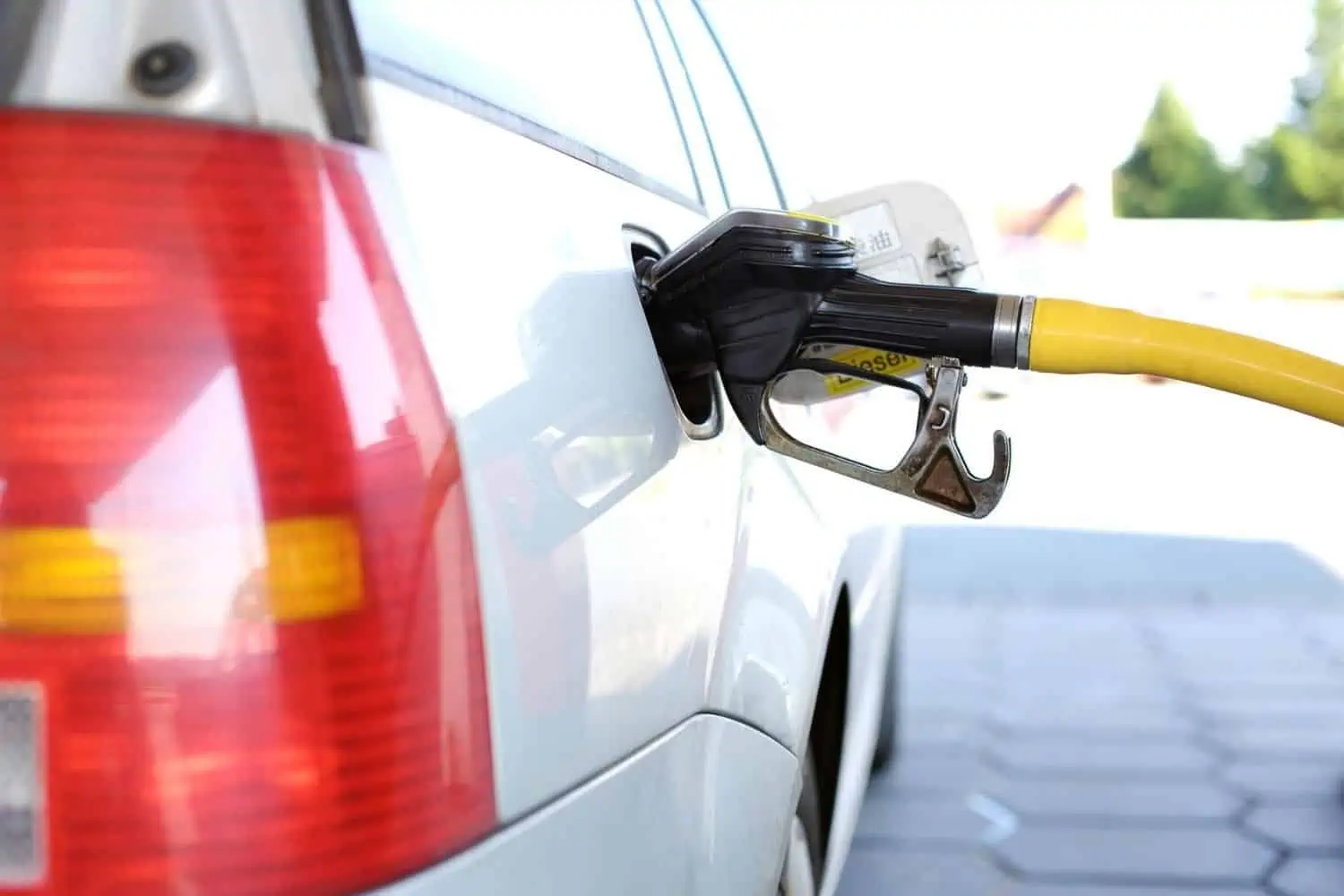According to mid-month fuel price data, motorists in South Africa can expect another steep petrol price increase in March. The data was supplied by Engen sales and distribution company, East Cape Fuels.
The data was captured up until the 15th of February 2022 and shows “significant increases” for diesel and petrol drivers. This comes after the rising international petroleum prices.
And in the case that the current market conditions stay the same and these increases are realised, fuel prices would reach a record high.
The fuel price changes are as follows:
- 93 unleaded petrol — R1.23 increase
- 95 unleaded petrol — R1.24 increase
- 50ppm diesel — R1.37 increase
- Illuminating paraffin — R1.31 increase
The petroleum supplier always provides mid-month price estimates. And while the company has often underestimated the actual price increase, it has rarely overestimated it.
With East Cape Fuels’ estimated increases, unleaded 93 will cost R21.12 per litre, with unleaded 95 costing R21.38 per litre.
The price of diesel is estimated to rise to R19.44 per litre.

What could these petrol price increases mean for South Africa?
According to Mervyn Abrahams – the programme coordinator for the Pietermaritzburg Economic Justice and Dignity Group – food costs have been hiked up by 8.6% due to the fuel price increases in 2021.
There is one development that might be helpful to motorists – there could be a shift in trends regarding fuel taxes.
Jeff Schultz – BNP Paribas South Africa senior economist – explained that thanks to Finance Minister Godongwana’s request to re-assess fuel prices, fuel taxes might not rise as sharply.
“Fuel and road accident fund levies have historically seen above-CPI increases,” Schultz said.
“However, this time could prove different given finance minister Godongwana’s assertion that the structure of South Africa’s fuel price should be re-assessed as consumers are grappling with record fuel prices and taxes and levies currently accounting for a third of domestic fuel costs.”
“Any decision will have to be carefully considered, though, given the general fuel levy alone brings in more than 1% of GDP in annual revenues, while the road accident fund has a growing claims backlog,” he added.

